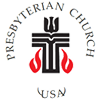For as many of you as were baptized into Christ have put on Christ. There is neither Jew nor Greek, their is neither slave nor free, theiere is no male and female, for you are all one in Christ Jesus. (Galatians 3:27-28)
After this I looked, and behold, a great multitude that no one could number, from every nation, from all tribes and peoples and languages, standing before the throne and before the Lamb, clothed in white robes, with palm branches in their hands, and crying out with a loud voice, “Salvation belongs to our God who sits on the throne, and to the Lamb!” (Revelation 7:9-10)
For as in one body we have many members, and the members do not all have the same function, so we, though many, are one body in Christ, and individually members one of another. Having gifts that differ according to the grace given to us, let us use them: if prophecy, in proportion to our faith; if service, in our serving; the one who teaches, in his teaching; the one who exhorts, in his exhortation; the one who contributes, in generosity; the one who leads, with zeal; the one who does acts of mercy, with cheerfulness. (Romans 12:4-8)
Episode 055: Malcolm X and the Christian Ethic of Violence
Malcolm X is arguably one of the most important people in African American religious and political thought. He was a man heavily influenced by his own personal experiences and the historic moment into which he was born. Along with the societal hardships that accompanied being Black in America when Jim Crow discrimination was enforced by law, Malcolm’s family endured racial violence. His life trajectory began to be characterized by his rejection of the society that had rejected him. This landed him in prison, where he was converted to the Nation of Islam.
On release from prison, Malcolm rose in the ranks of the Nation of Islam and spread the message of Elijah Muhammad across America. His ministry developed in the context of the civil rights movement and was characterized as the violent alternative to the peaceful solutions that Dr. Martin Luther King Jr. offered the nation.
Many who have rejected Malcolm’s social philosophy unfairly have interpreted him as a preacher of wanton violence against White people. However, this has left them susceptible to the charge of hypocrisy because there are elements within his ethic of violence that many Christians would defend if applied to their own lives.
Malcolm’s ethic of violence has at least three essential parts: self-defense, revolutionary, and retaliatory. A full theological examination of each of these exceeds the limitations of this article. However, one can conclude that Christian ethics allows for violence in the act of self-defense. Contrarily, Malcolm’s advocacy of retaliatory violence conflicts with biblical Christianity. Rather than softening the critique of Malcolm, I believe that this strengthens the argument against his philosophy because its precision protects the apologist from condemning what God allows. Therefore, African Americans should reject Malcolm’s teaching on retaliation because it conflicts with biblical Christian ethics.
This Postmodern Realities Podcast episode is a JOURNAL author conversation with Jimmy Butts about his Volume 40 #6 feature article “Malcolm X and the Christian Ethic of Violence.”
